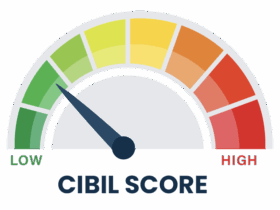
If you are new to the stock market, you must be overwhelmed with what CNC, MIS, and NRML mean. And how do they affect your strategy and profits? These acronyms may seem confusing or mysterious to any new investor. You feel like rushing to a financial advisor to help you understand this jargon.
In this article, we will start with CNC full form in the share market and then take up these three product types in detail. We will also add value by giving tips on choosing the right product type to fulfill your financial goals and risk appetite.
What Does CNC Mean in the stock market?
When you pick to invest in stocks, you need to settle on an investing strategy or methodology. You must select a product type that aligns with your preferences and objectives. You can DIY your strategy or seek financial advisory.
CNC full form in the share market is Cash and Carry. Simply put, you purchase the stocks with cash and hold them in your account until you sell them. You pay the total amount for the stocks and save yourself from any fees or interest.
CNC is an excellent option for long-term investors who want to hold equities for a long time and expect the price to increase. However, CNC has drawbacks, such as missing out on other chances and paying for storage and upkeep of stocks.
Selecting the best plan is difficult, so financial advisory is popular nowadays.
What does MIS mean in the stock market?
MIS stands for Margin Intraday Square Off, meaning buying and selling stocks must be done the same day using the money borrowed from your broker. You must close your positions before the day’s market ends, or the broker will automatically square them off. An MIS gives you more leverage to trade more stocks than your capital.
If the stock price grows in your favor, it is possible to make much money quickly. However, if the stock price falls, you may lose more than your initial investment. MIS appears appealing, but it is quite dangerous. It demands a high level of expertise, discipline, and risk management, which is generally the virtue of any financial advisory.
You should only use MIS if you are experienced and confident in handling the volatility and pressure of the stock market. If you are unsure how to use MIS, consider consulting a financial advisory service that can guide you through the process and help you make informed decisions.
What does NRML mean in the stock market?
If you are a long-term investor interested in the derivatives market but fearful of the intraday risks, you may prefer the NRML product type. The full form of NRML in the stock market is Normal. It’s a position where you can hold your investments without a compulsion to sell off until the contract ends.
You may need expert guidance from financial advisory as, unlike Intraday, here you pay the full margin required by the exchange. Moreover, you must be ready to pay any losses to keep your investments open. Because the broker does not automatically square off NRML orders, you must manually close them before expiration.
NRML orders work well for investors with a strong sense of market momentum and are willing to hold their positions for longer. NRML, like CNC and MIS, takes talent and patience, and please don’t be afraid to seek financial advisory services if necessary.
Explained: Difference between CNC, MIS, NRML
| Product Type | Full Form | Description | Leverage | Auto Square-off | Segment | Risk |
| CNC | Cash and Carry | Used for delivery-based trading in equity. You buy and hold the stocks for more than one day. | No | No | Equity | Low |
| MIS | Margin Intraday Square-off | Used for intraday trading in equity and F&O. You buy and sell the same day and do not take delivery or carry forward your positions. | Yes | Yes | Equity, F&O, Currency, Commodity | High |
| NRML | Normal | They are used for overnight trading in F&O, Currency, and Commodities. You carry forward your positions until the contract ends. | No | No | F&O, Currency, Commodity | Moderate |
The Bottom Line
In conclusion, CNC, MIS, and NRML are three popular investing styles used in stock market day-to-day transactions. Each has different features and benefits, risks, and rewards.
You can select the product type that best suits your investment technique, ambitions, risk tolerance, and persona. Before you start your journey on the unexplored roads of investing, do some good research. Consult a financial advisory service if you need more time or good research skills.











